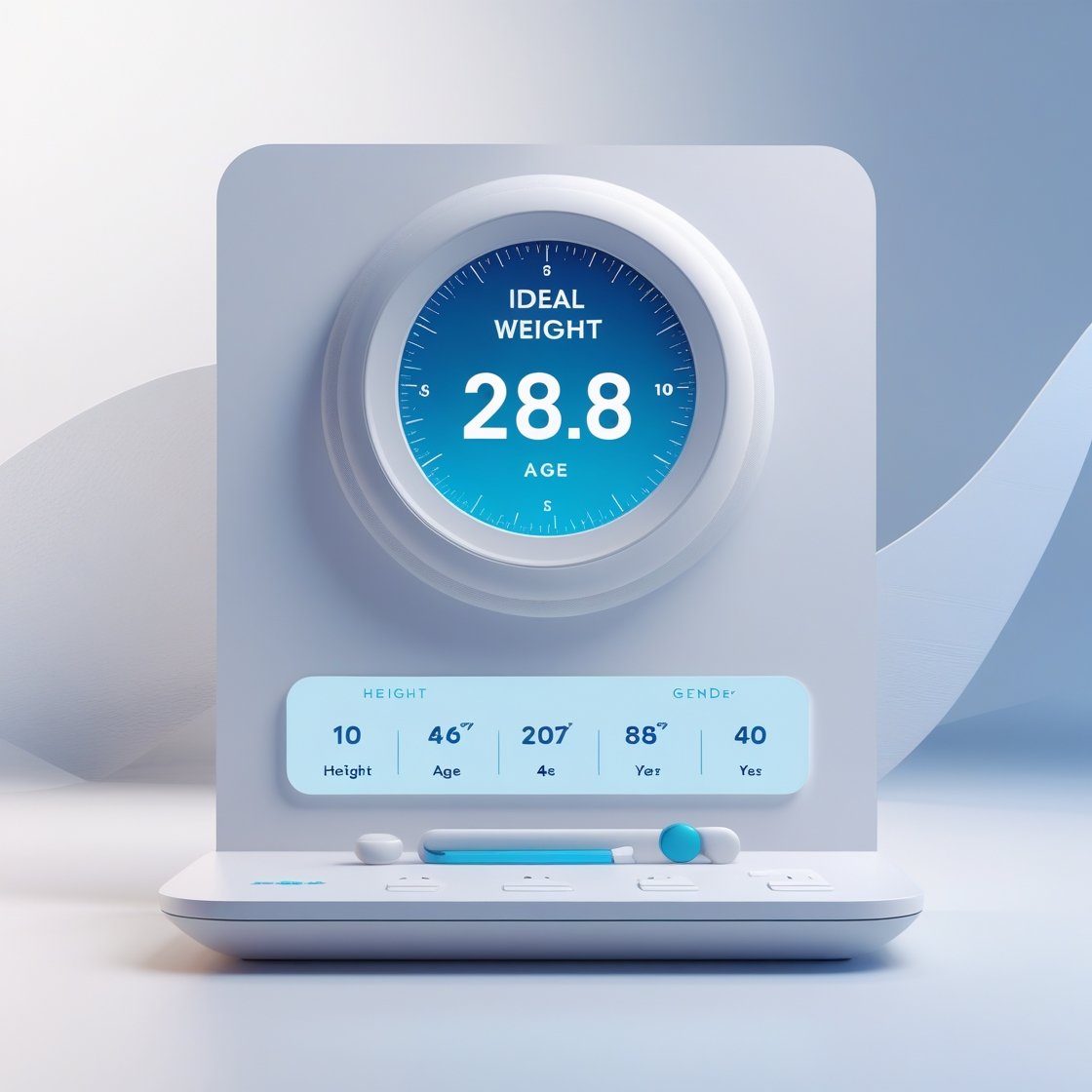The Ideal Weight Calculator shows your ideal body weight based on height, gender, and age. It uses popular IBW formulas—like Devine, Robinson, Miller, and Hamwi—so you can compare results side by side.
Ideal Weight Calculator
Discover your healthy weight range based on scientific formulas. Calculate your ideal body weight for optimal health and longevity.
Your Information
Your Results
Understanding Your Ideal Weight
📏 What is Ideal Weight?
Your ideal weight is a range that supports optimal health, reducing risk for weight-related diseases while promoting longevity.
⚖️ How is it Calculated?
This calculator uses the Devine formula, adjusted for gender and body frame, to determine your healthy weight range.
❤️ Why It Matters
Maintaining a healthy weight reduces risk of heart disease, diabetes, and improves overall quality of life.
What Is the Ideal Weight Calculator?
The Ideal Weight Calculator shows your ideal body weight based on height, gender, and age. It uses popular IBW formulas—like Devine, Robinson, Miller, and Hamwi—so you can compare results side by side.
How It Works
Just enter your age, gender, and height, then hit Calculate—you’ll see each formula’s ideal weight in both US and metric units. It also shows a healthy BMI range to give extra context for your weight.
Ideal Weight: By Formula
The table below shows typical results for a 25‑year‑old, 180 cm person:
| Formula | Ideal Weight |
|---|---|
| Robinson | 72.6 kg |
| Miller | 71.5 kg |
| Devine | 75.0 kg |
| Hamwi | 77.3 kg |
| Healthy BMI | 59.9 – 81.0 kg |
Why Calculate Ideal Body Weight?
Many people wonder, “How much should I weigh?” Your IBW helps in:
– Calculating medication dosage
– Determining drug metabolism
– Finding weight classes in sports
It’s not just about looks, it’s about health care and performance.
Know Its Limits
IBW does not consider body fat, muscle mass, or osteoporosis. So, a well‑built athlete may be flagged “overweight.” Use IBW only as a reference, not a strict target.
What Affects Your Ideal Weight?
Many factors come into play, including:
Age
Between the ages of 14–17, most people stop growing taller. As you age, you may lose height and muscle and gain fat. Regular exercise, balanced nutrition, quality sleep, and lower stress can slow this change.
Gender
Men usually weigh more because they have more muscle mass and bone density, even when height is similar.
Height
Taller individuals naturally weigh more, due to more muscle and body mass.
Body Frame Size
Assess this by comparing your wrist circumference with your height. People with larger frames carry more weight at the same height.
How IBW Formulas Were Created
These formulas began in medicine to help doctors dose medications safely. They assume a base weight at 5 ft and add a set amount for each extra inch:
- Hamwi (1964): For men, start 48 kg + 2.7 kg per inch. For women, start at 45.5 kg + 2.2 kg.
- Devine (1974): Men: 50 kg + 2.3 kg. Women: 45.5 kg + 2.3 kg.
- Robinson (1983): Men: 52 kg + 1.9 kg. Women: 49 kg + 1.7 kg.
- Miller (1983): Men: 56.2 kg + 1.41 kg. Women: 53.1 kg + 1.36 kg.
Healthy BMI Range
The WHO recommends a BMI between 18.5 and 25. That range helps determine if your weight is in a safe zone. Doctors use BMI to check for weight-related health risks like obesity, diabetes, or heart disease.
How About Kids and Teens?
For people under 18, adult formulas don’t apply. Instead, use the CDC BMI charts, which set healthy ranges by age percentile. These are updated regularly and often accessed via the CDC website.
Final Takeaway
The Ideal Weight Calculator gives you a helpful ballpark, based on popular IBW formulas and BMI. But remember, it’s only a starting point. Muscle, bone, fat, and lifestyle all matter more than a single number. Aim for health, not perfection.


